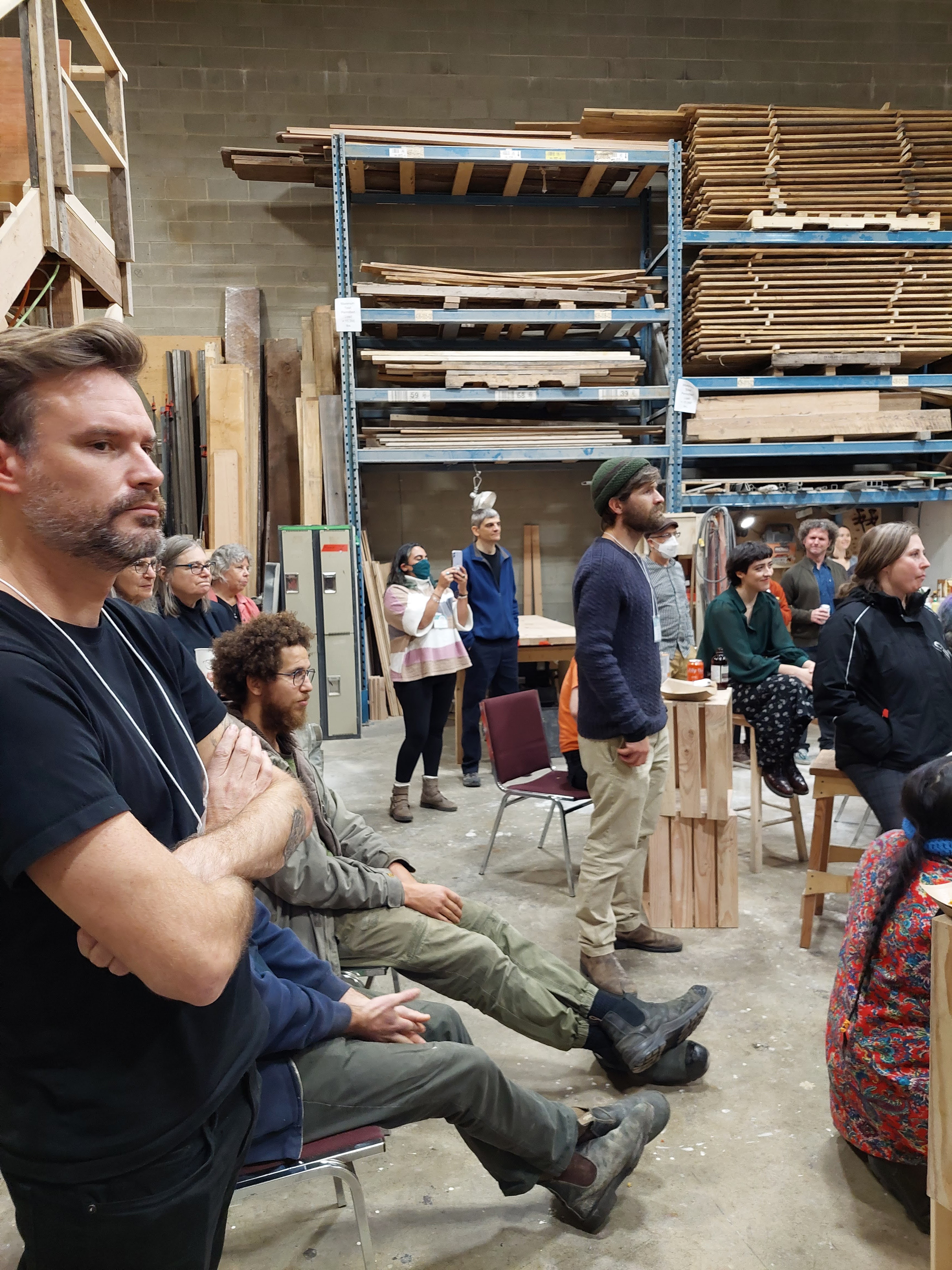
By Joy Emmanuel
Once again, CWCF’s annual conference was a source of inspiration and renewal, bringing co-operators together from across the country to focus on the multiple ways we can work in our co-ops and our communities to support the growth and health of the worker co-op sector.
From east to west there was representation from all regions of the country. New worker co-op members brought enthusiasm and raised critical questions; established co-ops and developers shared best practices and peer insights from their work; the keynote panel and various presenters brought new elements to the conversation as we explored the theme of mutual empowerment through the co-operative and solidarity economy.
The matter of mutual empowerment was approached from multiple perspectives. The opening forum touched on Indigenous sovereignty and raised questions about the impacts of the fossil fuel, “extractive,” capitalist economy and First Nations’ response to the development of pipelines across their territory. In the Worker Co-op Developer session, participants were introduced to Solid State Community Industries – a non-profit, incubator group working with marginalized youth to develop new forms of social enterprise that do not reproduce “systems of oppression.” “Many ethnic communities come from cultural backgrounds of cooperation. It’s already a way of living that works for them.” Like co-operatives, key elements of the new enterprises are that profits are shared equally and decisions are made democratically.
The keynote panel offered insights from the BIPOC community on how the solidarity economy is an economy built around “relationship and collective survival.” Within the Solidarity Economy relationships are valued over transactions and having a high level of accountability, to common values and each other, cultivates group well-being. Each speaker shared how they work within their communities to collectively dismantle and navigate systemic barriers and create workplaces as safe communities of care.
Later, in a workshop on the Social Economy principles, the SE was framed as a transformational, movement-building approach that recognizes the intersectionality of different forms of oppression and that the path of liberation comes from acknowledging the true interdependence among us all – including the Earth and all living beings. In a nutshell: “No one is free, till everyone is free.”
Interwoven around this stirring conference theme were many stimulating workshops, such as:
- Tools for Accountability – exploring how self-care and self-awareness are interwoven with collective well-being and governance in the healthy life of a co-operative.
- Resilient Strategic Planning – the value of having a road map for the growth of your co-op and many dimensions of care and planning to think about (having an external environment scan, supply chain resilience, risk assessment, financial health, etc.) to ensure your co-op can thrive in many circumstances.
- Co-op Developer sessions offering examples and steps in the process of converting a traditional business into a worker co-op. The recommendation is to begin the conversation 1 or 2 years ahead of planned changes.
- Mapping out and building a dynamic co-op eco-system – examples from BC and the US Worker Co-op Federation.
- And more great options: Developing Trade Union Co-ops, Building Strong Government Relations, and Finding Funding to Meet your Co-op’s Needs.
A fun feature of CWCF conferences is always the Co-op Ignite presentations. It is inspiring to hear the many ways people adopt the worker co-op model to meet their own and community needs and a treat to hear about the good projects and focus of their work. Some of the presenters this year included: Glitter Bean Café (Halifax), Aster Environmental Group (New Brunswick), two newly formed consulting co-ops – Co-Active Developments and GIA Consulting, CanTrust Hosting Co-op, and Vancouver Renewable Energy Co-op.
As the annual business meeting revealed, along with yearly highlight reports from Reba Plummer (President) and Hazel Corcoran (Executive Director), it’s been another year of hard work and innovative growth for CWCF! Continuing with the Worker Co-op Academy, supporting the work of the JEDDI (justice, equity, diversity, decolonization, and inclusion) committee, lobbying for government support around business conversions to worker co-ops, offering webinars, and continuing to build the worker co-op ecosystem in many ways has kept the staff and board of CWCF busy!
Another highlight of the annual conference is the presenting of the Worker Co-op Best Practices Award. This year’s winner was BC Wood Shop Co-op that also hosted our evening Mix and Mingle social time. Our visit to the Wood Shop Co-op provided another great example of a form of the co-operative / solidarity economy, as the Co-op’s workspace is a hub for four small businesses and through their flexible business model, they are able to hire several people who experience barriers to employment. As more than one person said: “I love coming to work in a place like this.” The warm, friendly atmosphere was felt by us all.
As I am fond of saying to all my co-op contacts, be sure to put CWCF’s annual conference on your calendar! It’s a highlight of the co-op year in my books. The 2023 conference will be in Quebec City in November. Put it in your calendar. You won’t want to miss it.